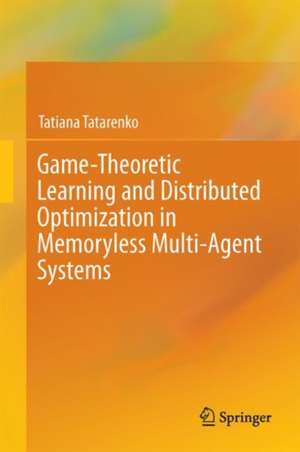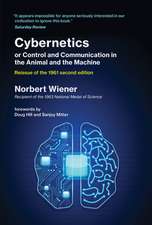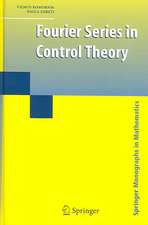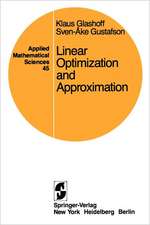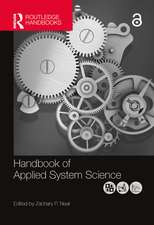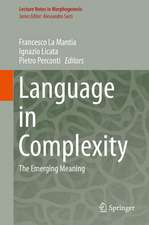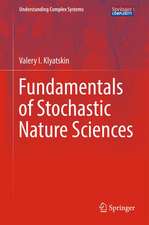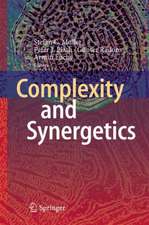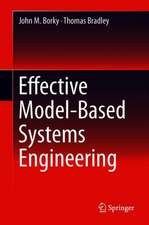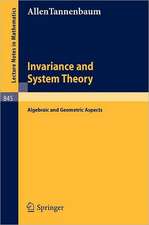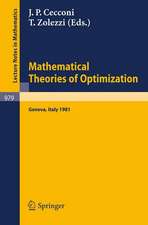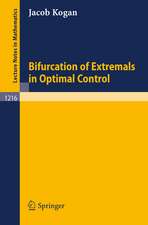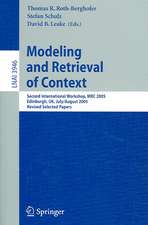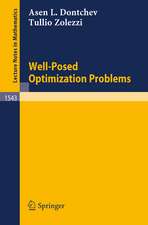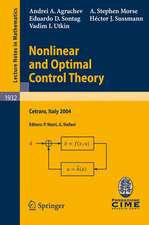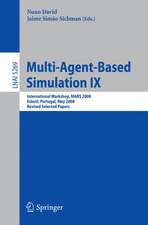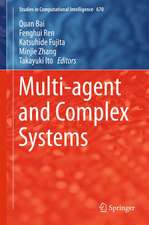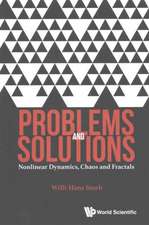Game-Theoretic Learning and Distributed Optimization in Memoryless Multi-Agent Systems
Autor Tatiana Tatarenkoen Limba Engleză Hardback – 28 sep 2017
| Toate formatele și edițiile | Preț | Express |
|---|---|---|
| Paperback (1) | 356.31 lei 38-44 zile | |
| Springer International Publishing – 15 aug 2018 | 356.31 lei 38-44 zile | |
| Hardback (1) | 388.90 lei 6-8 săpt. | |
| Springer International Publishing – 28 sep 2017 | 388.90 lei 6-8 săpt. |
Preț: 388.90 lei
Nou
Puncte Express: 583
Preț estimativ în valută:
74.43€ • 77.41$ • 61.44£
74.43€ • 77.41$ • 61.44£
Carte tipărită la comandă
Livrare economică 14-28 aprilie
Preluare comenzi: 021 569.72.76
Specificații
ISBN-13: 9783319654782
ISBN-10: 3319654780
Pagini: 171
Ilustrații: IX, 171 p. 38 illus.
Dimensiuni: 155 x 235 mm
Greutate: 0.44 kg
Ediția:1st ed. 2017
Editura: Springer International Publishing
Colecția Springer
Locul publicării:Cham, Switzerland
ISBN-10: 3319654780
Pagini: 171
Ilustrații: IX, 171 p. 38 illus.
Dimensiuni: 155 x 235 mm
Greutate: 0.44 kg
Ediția:1st ed. 2017
Editura: Springer International Publishing
Colecția Springer
Locul publicării:Cham, Switzerland
Cuprins
Introduction and Research Motivation.- Backgrounds and Formulation of Contributions.- Logit Dynamics in Potential Games with Memoryless Players.- Stochastic Methods in Distributed Optimization and Game-Theoretic Learning.- Conclusion.- Appendix.
Recenzii
“This book offers new efficient methods for optimization and control in multi-agent systems through the agency of game-theoretic learning. … The book represents an important scientific contribution in the field of optimization for the multi-agent systems.” (Vasile Postolică, zbMath 1415.91002, 2019)
Notă biografică
Tatiana Tatarenko received her Ph.D. from the Control Methods and Robotics Lab at the Technical University of Darmstadt, Germany in 2017. In 2011, she graduated with honors in Mathematics, focusing on statistics and stochastic processes, from Lomonosov Moscow State University, Russia. Her main research interests are in the fields of distributed optimization, game-theoretic learning, and stochastic processes in networked multi-agent systems. Currently, Dr. Tatarenko is a research assistant at TU Darmstadt, where she teaches and supervises students.
Textul de pe ultima copertă
This book presents new efficient methods for optimization in realistic large-scale, multi-agent systems. These methods do not require the agents to have the full information about the system, but instead allow them to make their local decisions based only on the local information, possibly obtained during scommunication with their local neighbors. The book, primarily aimed at researchers in optimization and control, considers three different information settings in multi-agent systems: oracle-based, communication-based, and payoff-based. For each of these information types, an efficient optimization algorithm is developed, which leads the system to an optimal state. The optimization problems are set without such restrictive assumptions as convexity of the objective functions, complicated communication topologies, closed-form expressions for costs and utilities, and finiteness of the system’s state space.
Caracteristici
Presents new, efficient methods for optimization in large-scale multi-agent systems Develops efficient optimization algorithms for three different information settings in multi-agent systems Sets optimization problems without common restrictive assumptions
